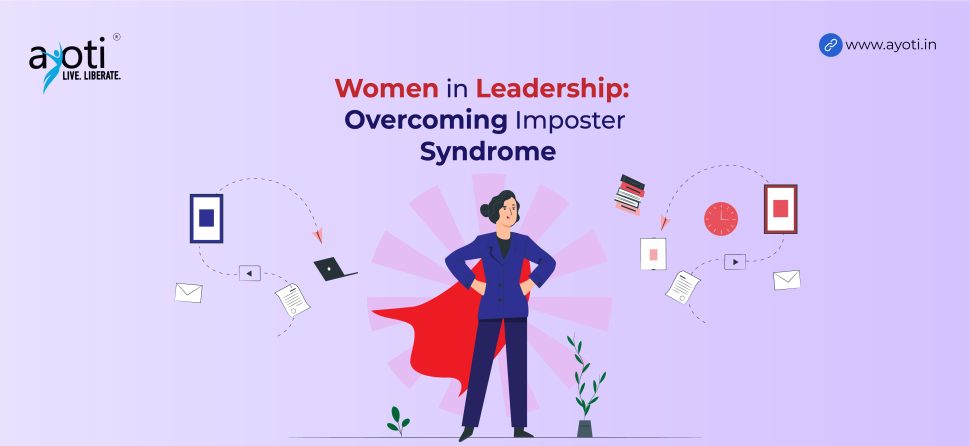By ayoti
Women in Leadership: Overcoming Imposter Syndrome
Within the corporate world, women are still progressing towards holding leadership positions. But even with these developments, a sizable portion of people continue to struggle with the widespread problem of imposter syndrome.
This mentality, which is marked by a recurring sense of self-doubt and a dread of being revealed as a “fraud,” can impede the advancement of women into positions of leadership. For women who want to succeed in leadership roles, it’s imperative that they comprehend the mechanics of imposter syndrome and put mechanisms in place to combat it.
Understanding Imposter Syndrome
Although not unique to them, women are more susceptible to imposter syndrome in the workplace. The persistent worry that one may be exposed as unworthy or insufficient can cause self-destruction and undermine the self-assurance required to succeed in leadership positions. Women tend to minimise their skills and knowledge, attributing their achievements to outside forces. Internalised self-doubt feeds a vicious loop of discrediting their accomplishments, impeding their progress and limiting their ability to make a bigger difference.
Challenging Self-Perceptions
In order to overcome imposter syndrome, one must first examine their self-perception. Women need to understand that their accomplishments result from their abilities and hard effort, not luck or approval from others. Making a physical archive of their accomplishments and affirmations can act as a constant reminder of their skills and abilities, assisting in the transformation of their self-perception from one of an impostor to one of a capable leader.
Embracing Vulnerability and Authenticity
Embracing vulnerability and authenticity can be a powerful tool in combating imposter syndrome. By acknowledging one’s insecurities and sharing personal struggles, women leaders can cultivate an environment of empathy and trust within their teams. Authentic leadership not only fosters a more inclusive work culture but also encourages others to embrace their vulnerabilities, ultimately mitigating the impact of imposter syndrome on the entire team.
Building a Supportive Network
Establishing a network of supportive peers and mentors is essential for women in leadership roles. Surrounding oneself with individuals who provide constructive feedback, guidance, and encouragement can help combat feelings of isolation and self-doubt. Peer support groups, mentorship programs, and professional networks dedicated to women’s leadership development provide valuable resources and a platform for shared experiences, fostering a sense of belonging and empowerment.
Cultivating Resilience and Self-Compassion
Cultivating resilience and practising self-compassion are critical in navigating the challenges associated with imposter syndrome. Women leaders should acknowledge that setbacks and failures are part of the learning process, and these experiences do not diminish their worth or competence. Having a growth mentality and seeing obstacles as opportunities to grow can bolster resilience and fortify one’s self-belief, enabling one to overcome self-doubt and thrive in leadership roles.
Promoting a Culture of Recognition and Appreciation
Fostering a culture of recognition and appreciation within the organisation can help mitigate the effects of imposter syndrome. Implementing regular feedback sessions, acknowledging individual contributions, and celebrating achievements can boost morale and reaffirm the value of each team member. By promoting a culture of inclusivity and recognition, women leaders can cultivate an environment where everyone feels valued and appreciated, fostering a sense of belonging and confidence among team members.
Conclusion
Overcoming imposter syndrome is a gradual process that requires self-awareness, resilience, and a supportive community. By challenging self-doubt, embracing authenticity, and cultivating resilience, women can thrive in leadership roles and pave the way for a more inclusive and empowering work environment.
Recognising and addressing imposter syndrome not only benefits individual women but also contributes to the overall advancement and success of women in leadership, promoting diversity and inclusivity in the corporate world. With continued efforts to empower and uplift women in leadership, organisations can foster a culture that values authenticity, resilience, and the diverse perspectives women bring to the table, creating a more equitable and thriving professional landscape for all.





